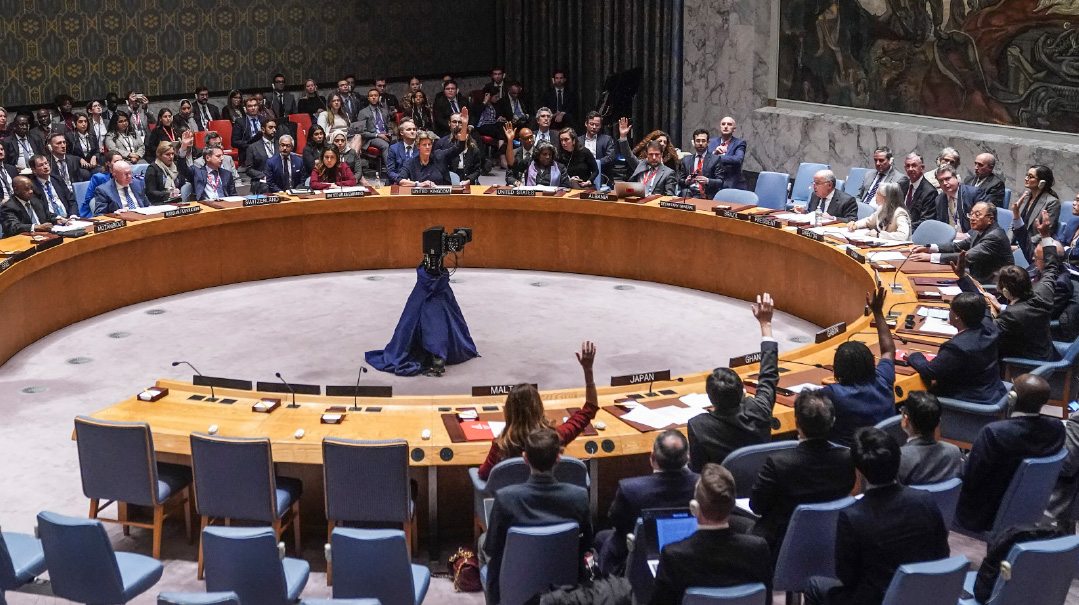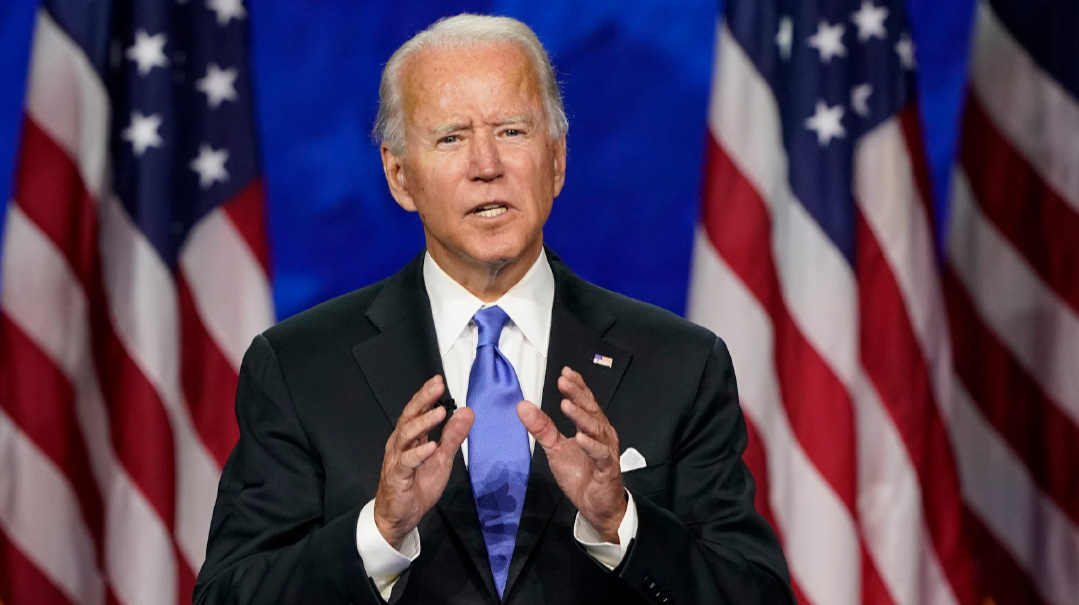Not So Splendid Isolation
| April 9, 2024“It’s clear that Israel’s fear of growing diplomatic isolation is well founded”

Photo: AP Images
T
he cover of the Economist says it all: a lonely Israeli flag fluttering in the storm. The article inside addresses “Israel’s growing diplomatic isolation.” Judging by last month’s UN Security Council’s 14 to nil vote, with America abstaining, for a resolution that opposed Israel’s strategy to eliminate Hamas, it’s clear that Israel’s fear of growing diplomatic isolation is well founded. That isolation is seen not in the disproportionate vote — after all, this is the regular practice at the UN — but in the decision of the US, Israel’s main ally (and some say only ally) in the world, not to veto the resolution, allowing it to pass.
This isn’t the first time that Israel finds itself isolated — and not only at the UN, but also in the wider arena of international relations. But it was especially stinging because of the Gaza war’s horrid background, which for Jews brought back traumas from the Holocaust, and a sense that denial of that calamity had morphed into denial of Hamas atrocities.
Being isolated is not a new phenomenon for Jews. David Ben-Gurion, the founder of the State of Israel, recognized the challenges of being surrounded by a mostly hostile environment. From day one, he worked to establish close ties with a United States that, initially, was not always willing; and sought allies among non-Arab states in the region, such as Iran, Turkey, and Ethiopia. The latter attempt was only partly successful at the time due to the vicissitudes of Middle Eastern politics — though the concept of a regional partnership found concrete realization many years later in Netanyahu’s Abraham Accords, significantly aided by former president Trump.
“Israel against the world” (or as it is expressed in Hebrew, “Kol ha’olam negdeinu”) has had its ups and downs. When “little Israel” was victorious in the Six Day War, it was a hero to most of the West. Some of those same parties who praised it now prefer to depict it as the cause of many of the world’s troubles, and even being the victim of atrocious barbarity won’t change their prejudice. But much of the current reality has come about through developments only partly related to Israel, and mainly fostered by domestic trends and demographic changes in other countries.
Growing anti-Semitism plays an important role in this, especially in countries like Britain, France, and Belgium, where significant local Arab and Muslim communities are influencing domestic politics. The United States is a special case (and especially now because of this year’s elections).
Fissures in American society exacerbated by economic and racial inequalities have opened the door for the radical left to systematically create a false and intentionally misleading equation between the lot of African Americans and that of Palestinian Arabs. Historical facts notwithstanding, Israelis and Zionists are depicted as colonialists who deserve to be eliminated. Although it was not a very successful movement, BDS was a forerunner in this respect, and its adherents and supporters made clear that its goal wasn’t just boycotts of Israeli products but the very annihilation of Israel.
Are these bigoted attitudes shared by the administration or other responsible politicians? Of course not — but they are not always ignored, especially in an election year, when anti-Israel and anti-Semitic throngs are running wild in the streets. Sometimes their chants find echoes all the way to the State Department, and even to the halls of Congress. These attitudes seep through to other countries in the West, in spite of often different circumstances, sometimes with worse results.
There is also a question of cause and effect — i.e., are the policies of this or that Israeli government the cause of anti-Jewish and anti-Israel attitudes? Or is the present climate of opinion in American society causing anti-Israel attitudes? The answer is that although rash and foolish statements by some Israeli politicians may make things worse, anti-Israel attitudes are not dependent on Israel’s political leadership.
Not every problem has a solution, especially not an immediate one — and that is where Israeli diplomacy comes in. Understanding that nothing is so variable as the things assumed to be constant, Israel will have to closely follow developments in the power struggle between the democratic world (to which it belongs) and the axis of China, Russia, and Iran, which confronts it ideologically and practically. Israel will have to continue acting in its own vital interests, with emphasis on the term “vital,” but avoid unnecessary confrontations in other matters.
Taking into account the advantages of engagement with the American Jewish community — which, though diminished, is still very potent — Israel will have to bear in mind the opinion of the majority of American Jews when enacting domestic policy.
If the US remains Israel’s crucial ally, where is the relationship between the two countries heading? Some aspects of Israel’s relationship with the US may appear contradictory and even paradoxical. Israel, as has been shown again in the current war, needs American military aid — but it will continue rightly to insist on being the sole arbiter on matters pertaining to its security. Israel’s guiding principle in national defense is the ability “to defend itself by itself.”
This is actually a positive in the eyes of most Americans, who do not want to see American boots on the ground in foreign places; but the US believes that Palestinian statehood is the solution to achieving peace. Israel (and not only its current leadership) holds that this would be a recipe for ongoing warfare and Iranian interference.
For the US, partnership with Israel is seen as essential to security because it is a faithful, democratic ally with an innovative economy and military, and a democratic island of stability in an unstable, strategically important region where America has other allies under threat from Iran and its proxies. But this shouldn’t, in American eyes, give Israel full rein in military decisions that might affect its other interests, directly or indirectly. For Israel, the close relationship is essential, and this is seen in some quarters in the US as a burden on American interests.
“Am levadad yishkon [Israel will dwell alone]” is a matter of fact — and if it cannot be avoided, the task must be to compensate for it with proactive diplomacy in a wide range of fields, preserving close ties with the US in spite of the latter’s domestic upheavals — and not to forget, Jewish unity as a back-up for all the rest.
Zalman Shoval is a former Israeli ambassador to the United States and has been active in Israeli diplomacy since 1955. He serves on the boards of numerous Israeli universities and foundations, including Tel Aviv University and the Interdisciplinary Center (IDC) in Herzliya.
(Originally featured in Mishpacha, Issue 1007)
Oops! We could not locate your form.






